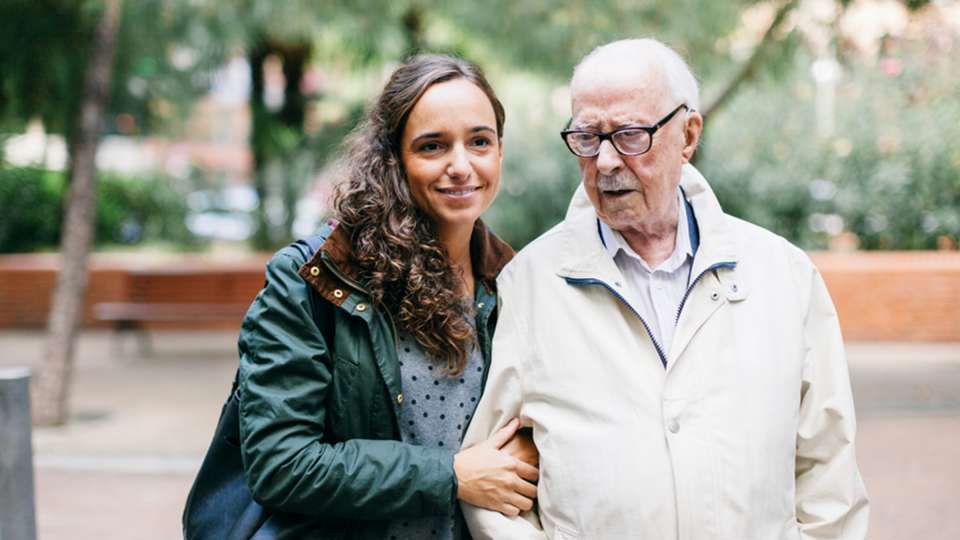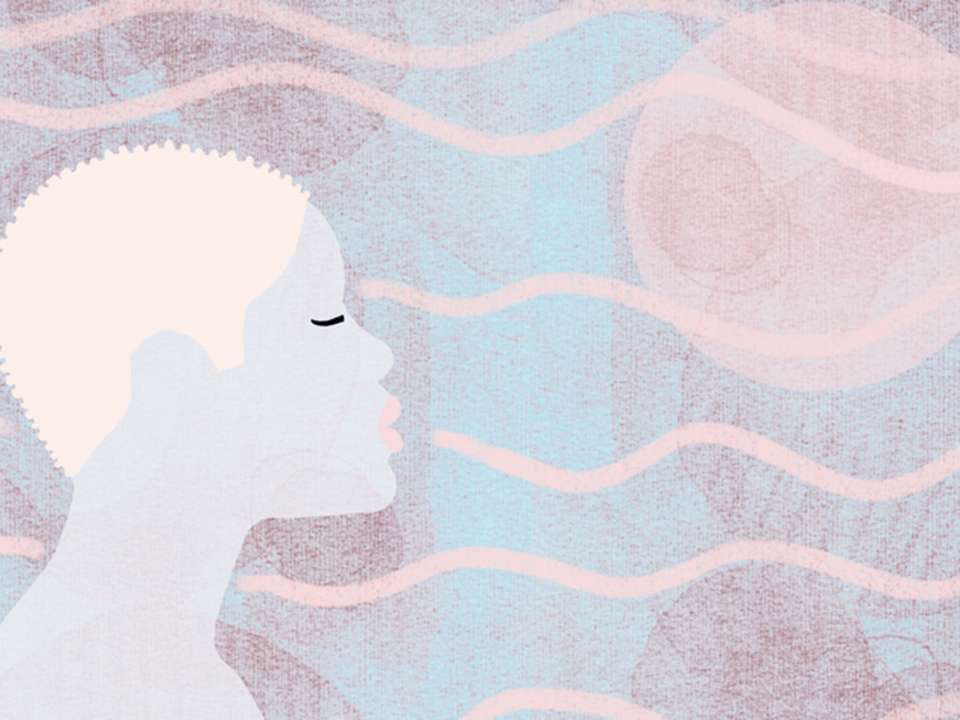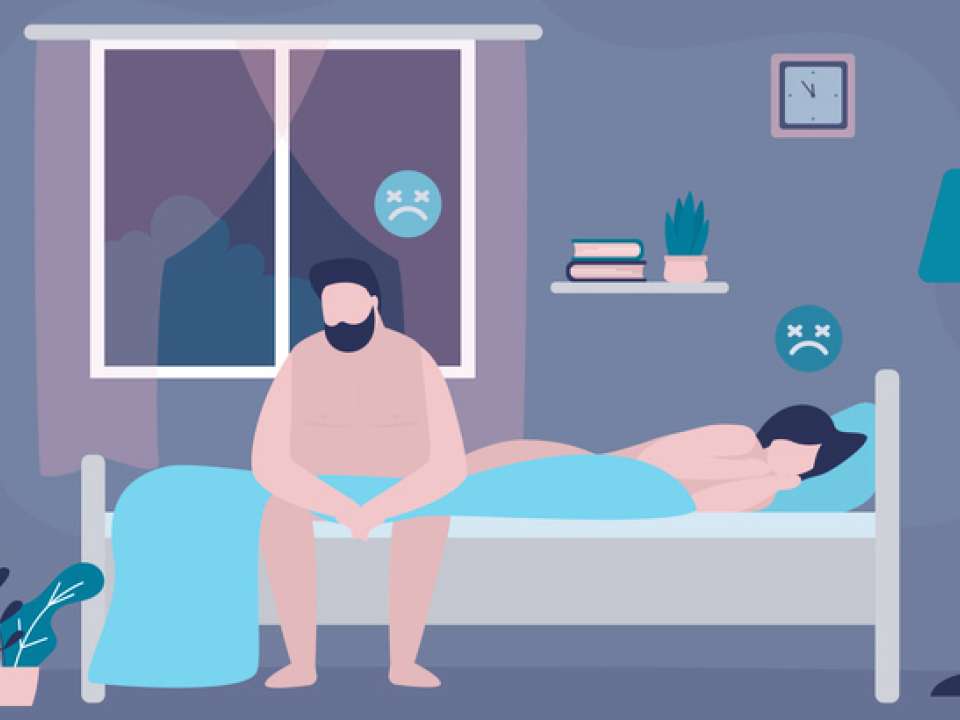
Chances are, you know someone who has dementia or Alzheimer’s disease. Dementia is the daily reality of 55 million people worldwide, and Alzheimer’s is the sixth-leading cause of death in the United States. So whether it affects your grandparent, your friend’s relative or your neighbor, the problem remains the same: Since there is no cure, how do we help people with dementia live full lives?
I have wondered that since my grandma began experiencing dementia several years ago. Change came slowly and seemed minor at first. Once the queen of making sure everything was in its place, she let her apartment get messy. She ceased attending her weekly hair appointments, a ritual she’d adhered to for decades.
Then, my dad called her one day and she thought she was talking with his brother, her younger son. When he handed the phone to me, she drifted between recognition and confusion.
I decided to write her letters instead. Long letters, often with photographs, something to brighten her day since she’d been moved into a nursing home. For a while, my efforts were successful. I would hear from my uncle’s family, who she lived near, that my letters made her smile.
Then her interest waned, so I stopped sending them.
Instead of letting go, redefine identity
Years have gone by and I still feel I could do more. Though she no longer knows me, is there a way to maintain our relationship?
Long-distance is tricky, admits Marigrace Becker, M.S.W., who works at the UW Memory and Brain Wellness Center leading educational and support programs for people living with dementia. She says that things like Skype and FaceTime can be easier than a phone call by providing a visual aid for the person who has memory loss. Sending letters and especially presents, things you know the person likes, is also good.
Still, it can be difficult to know how to act if someone doesn’t know who you are. While Janelle Taylor, Ph.D., an anthropologist at the University of Washington, was caring for her mother after she began losing her memory, she realized that people always asked her the same question: Does she remember you?
“The things dementia affects—language, memory—are so central to how we think about who a person is,” Taylor says.
Yet, she wondered whether identity could be defined differently, by the network of people who know a person instead of by the person themselves. She has studied the way people maintain (or don’t maintain) relationships when memory loss is involved.
Letting go doesn’t help the person with dementia, Becker says, and doesn’t have to be the default.
“Someone with dementia is more at risk for things like depression and anxiety, so the ability to maintain social connections with family or friends can help with that,” Becker says. “Just like any one of us has that deep need to know and be known, people with dementia are no different.”
As difficult as it is to know how to act around someone with dementia, it is equally difficult to see a loved go through the disease and know that they don't have the same level of understanding of who you are. So much of our identity is in relation to others, Becker says, so if someone you know doesn’t remember you, your own identity can get shaken.
Still, both Becker and Taylor emphasize that the relationship doesn’t have to be only about loss. People change and grow all the time, and though memory loss isn’t a change most people would choose, it doesn’t have to get in the way of you and your friend or relative beginning a new chapter.
How to reconnect
Becker works regularly with people who have dementia and their families and friends. Below are her insights for how to overcome any feelings of uncertainty and focus on what matters most: the friendship.
Be willing to enter their world
Instead of insisting someone conform to your worldview, meet them where they’re at. Becker likens this to a tenant of improv theater called Yes, And: Instead of challenging what someone says, accept it and build on it. It’s also important to listen to what your friend wants or doesn’t want; after all, they know best in terms of what they’re experiencing.
Explore new ways of communicating
The tendency to talk about shared histories when together and establish a give-and-take of messages and visits might not be possible for someone with dementia. Talking more slowly and communicating one distinct thought at a time can be helpful. Something as simple as sitting outside together on a nice day and hugging or holding hands can also be meaningful, even more meaningful than words.
Be in the moment
Focus on the present instead of worrying about what someone does or doesn’t remember or who they were in the past. Notice and talk about what you can sense: The birds singing in the tree next to you, the smell of fresh rain, the coziness of a comfortable sofa and warm blanket on a cold day.
Play to their strengths
Short-term memory is often quick to fade in someone with dementia, so asking questions about what they did that morning might not be the best idea. Doing is often better than talking, since people will often remember how to do something they enjoy. That could mean joining them for their favorite hobby or simply taking a walk together.
Introduce creativity
Memory loss can sometimes enhance someone’s ability to be creative. Painting, drawing or just looking at art together could help both of you tap into your creative sides. Music—playing it, listening to it or even singing along to it—is also a meaningful thing to share.
Don’t be afraid to have fun
Lowered inhibition is often seen as yet another negative to dementia, but in fact can be freeing. If someone’s inhibitions are lowered they are more open to being creative and trying new things without fear of embarrassing themselves. Whether that means taking that art class you’ve always wanted to or doing something your adult self would deem silly, take a cue from your friend and try something you wouldn’t be brave enough to try without them.
Keep the purpose in mind
Ask yourself, ‘What is my goal for this friendship?’ If it is to enjoy spending time together, recognition and memory are not requirements. Recognize that, while things may be different, you help reinforce your friend’s identity by being in their life. You remember all they’ve been and get the opportunity to learn new things about them and see sides to them you didn’t before. And even if your friend doesn’t remember you very well, having fun together will positively impact their mood—and yours.
Additionally, Taylor recommends talking about the situation with other family or friends who know the person with dementia—no matter how difficult that might seem at first.
“Dementia is one of those things that’s taboo,” she says. “People don’t want to talk about it and don’t know how to. It feels mean to say someone has dementia or is losing their memory. One thing that can make a difference is when friends make this an explicit topic of conversation. It can change that from something unspoken and shameful into something that a group of people can think about addressing.”

 Healthy ideas for your inbox
Healthy ideas for your inbox





